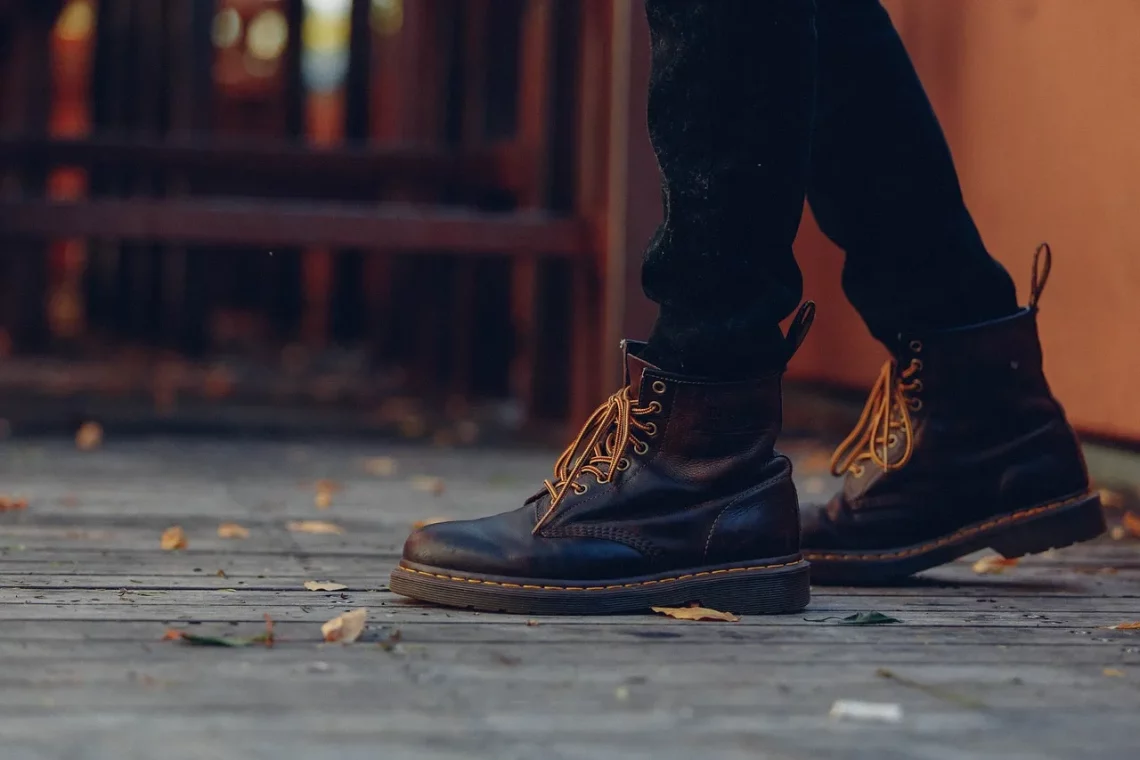
Best Footwear Options for Comfort and Support with Bunions
Finding the right footwear is crucial for anyone experiencing foot discomfort, particularly those with bunions. Bunions, characterized by a bony bump on the joint at the base of the big toe, can cause significant pain and swelling, making it challenging to find shoes that fit well and provide adequate support. As the condition progresses, the right pair of shoes can make all the difference in maintaining mobility and overall foot health.
Selecting the right footwear involves considering various factors such as the shoe’s shape, material, and level of support. It’s important to prioritize comfort and functionality over style, especially when dealing with bunions, as ill-fitting shoes can exacerbate existing issues. With so many options available in the market, it can be overwhelming to choose the right ones. However, understanding what to look for in a shoe can simplify the decision-making process and lead to a more comfortable, pain-free experience.
In this article, we will explore some of the best footwear options that cater to individuals with bunions, offering insights into what makes each option suitable for ensuring comfort and support.
Understanding Bunions and Their Impact on Footwear Choices
Bunions develop over time due to a combination of genetic predisposition, improper footwear, and other factors such as arthritis. When the big toe is pushed towards the second toe, it creates an imbalance in the foot structure, leading to the formation of the bony protrusion known as a bunion. This condition can cause not only physical discomfort but also emotional distress, as individuals may feel self-conscious about the appearance of their feet.
When selecting footwear, it is essential to understand the unique needs of bunion sufferers. Traditional shoe designs often do not accommodate the distinct shape of feet affected by bunions. Narrow toe boxes can compress the toes, leading to increased pain and further deformity. Therefore, shoes that provide ample space in the toe area are crucial.
Additionally, supportive soles and cushioning can help alleviate pressure on the bunion. Footwear designed with arch support can contribute to better alignment of the foot, which is particularly beneficial for those with bunions. It’s important to look for shoes that have a wide toe box, soft materials that prevent friction, and a sturdy sole that offers stability.
Investing in the right footwear can not only improve comfort but also slow the progression of bunions. As such, understanding the characteristics of suitable shoes will empower individuals to make informed choices, ultimately enhancing their quality of life.
Types of Shoes Ideal for Bunions
When it comes to choosing footwear for bunions, several types of shoes stand out as particularly beneficial. Each type offers unique features that cater to the specific needs of individuals with foot deformities.
**Sneakers**: Athletic shoes are often a go-to choice for those with bunions. They typically feature a wide toe box, cushioned insoles, and arch support. Look for sneakers made from breathable materials that allow for flexibility without compromising support. Brands known for their focus on comfort often produce models that are ideal for bunion sufferers.
**Sandals**: During warmer months, sandals can provide much-needed relief. Opt for adjustable sandals with wide straps and a contoured footbed. This design allows for customization of fit, accommodating any swelling that may occur throughout the day. Avoid flip-flops or styles with minimal support, as they can exacerbate discomfort.
**Orthopedic Shoes**: These shoes are specifically designed to address foot issues, including bunions. They often feature a wider fit, cushioned soles, and arch support. While some may perceive orthopedic shoes as less fashionable, many brands now offer stylish designs that do not compromise on comfort.
**Loafers and Slip-Ons**: For a more polished look, loafers and slip-on shoes can be a good choice. Ensure they have a wide toe box and are made from soft materials to avoid rubbing against the bunion. Look for models with removable insoles, allowing you to replace them with custom orthotics if necessary.
Each type of shoe has its advantages, but the key is to prioritize comfort and support over aesthetics. It’s advisable to try on shoes later in the day when your feet are slightly swollen to ensure a proper fit.
Material Considerations for Bunion-Friendly Footwear
The materials used in shoe construction play a significant role in comfort and support for bunion sufferers. When selecting footwear, consider the following aspects regarding materials:
**Softness**: Shoes made from soft, flexible materials are essential. Leather and suede are often good choices, as they can stretch and conform to the shape of the foot without causing irritation. Avoid stiff materials that can create pressure points on the bunion.
**Breathability**: Breathable materials help regulate foot temperature and moisture, reducing the risk of blisters and discomfort. Look for shoes with mesh fabric or perforations that allow for airflow. This feature is particularly important if you plan to wear the shoes for extended periods.
**Cushioning and Support**: Shoes with adequate cushioning can absorb shock and provide comfort. Memory foam insoles are an excellent option for added cushioning. Additionally, shoes with built-in arch support can help maintain proper foot alignment, reducing strain on the bunion.
**Weight**: Lightweight shoes can help reduce fatigue, especially for those who spend long hours on their feet. Heavy shoes can add unnecessary strain, making comfort a priority.
When considering materials, it’s also crucial to ensure that the shoes fit properly. A well-fitted shoe can make a significant difference in comfort levels, particularly for individuals with bunions.
Tips for Finding the Right Fit
Finding the right fit is paramount for anyone with bunions. Here are some tips to help ensure you choose the best footwear for your needs:
**Measure Your Feet**: Always measure your feet before purchasing shoes, as sizes can vary significantly between brands. It’s best to measure both feet, as many people have one foot larger than the other.
**Try Shoes On in the Afternoon**: Since feet can swell throughout the day, trying shoes on during the afternoon can help ensure a better fit. Walk around in the shoes to evaluate comfort and support.
**Check the Toe Box**: Make sure there is ample space in the toe box. You should be able to wiggle your toes without restriction. If the shoe feels tight across the toes, consider a wider model.
**Look for Adjustable Features**: Shoes with adjustable straps or laces can provide a customized fit. This feature is particularly beneficial for accommodating any swelling that may occur.
**Consult with a Professional**: If you are unsure about the right footwear for your bunions, consulting with a podiatrist or a footwear specialist can provide personalized recommendations based on your specific needs.
Choosing the right footwear can be a game changer for those suffering from bunions. By prioritizing comfort, support, and the right fit, individuals can significantly improve their quality of life and alleviate foot pain.
**Disclaimer**: This article is for informational purposes only and does not constitute medical advice. For any health-related issues, please consult a qualified healthcare professional.




